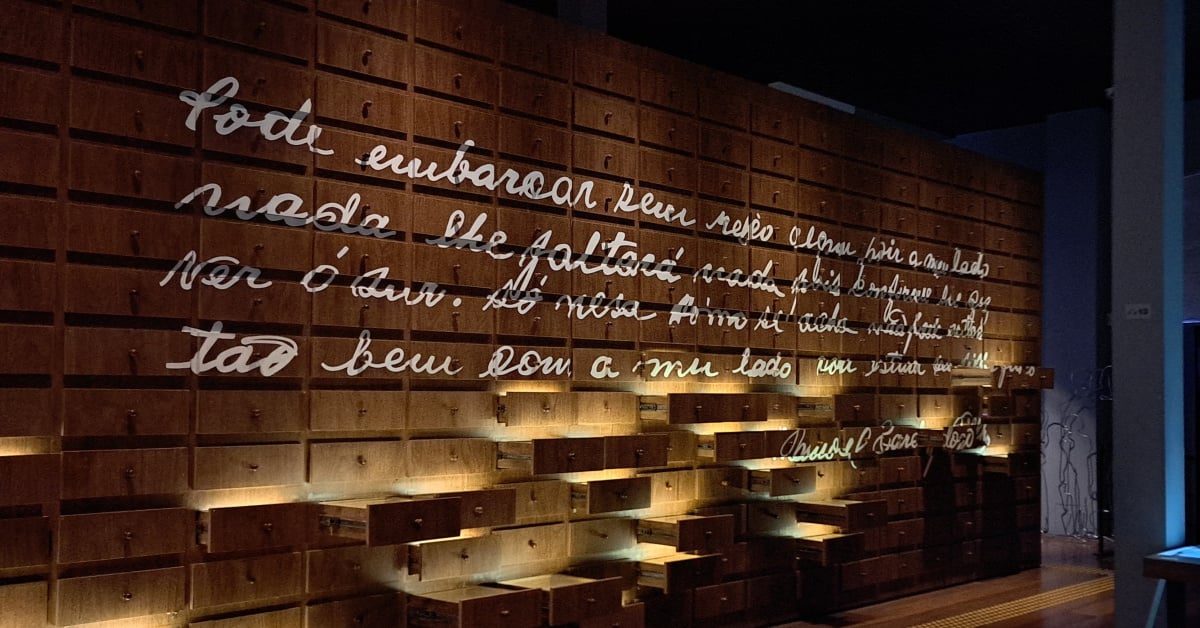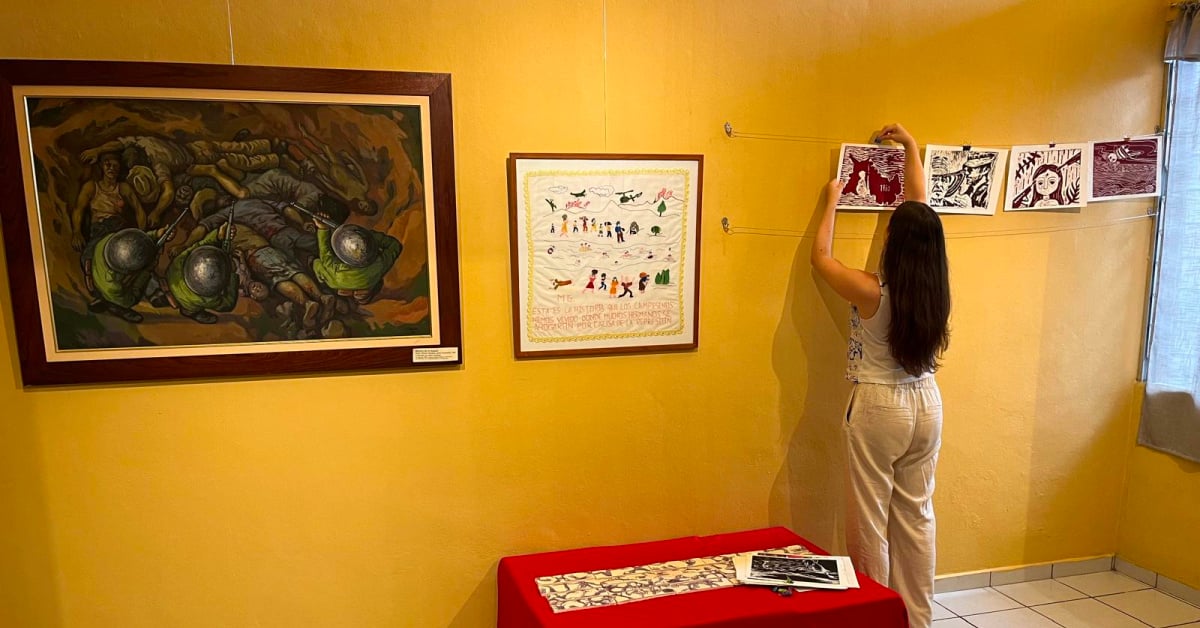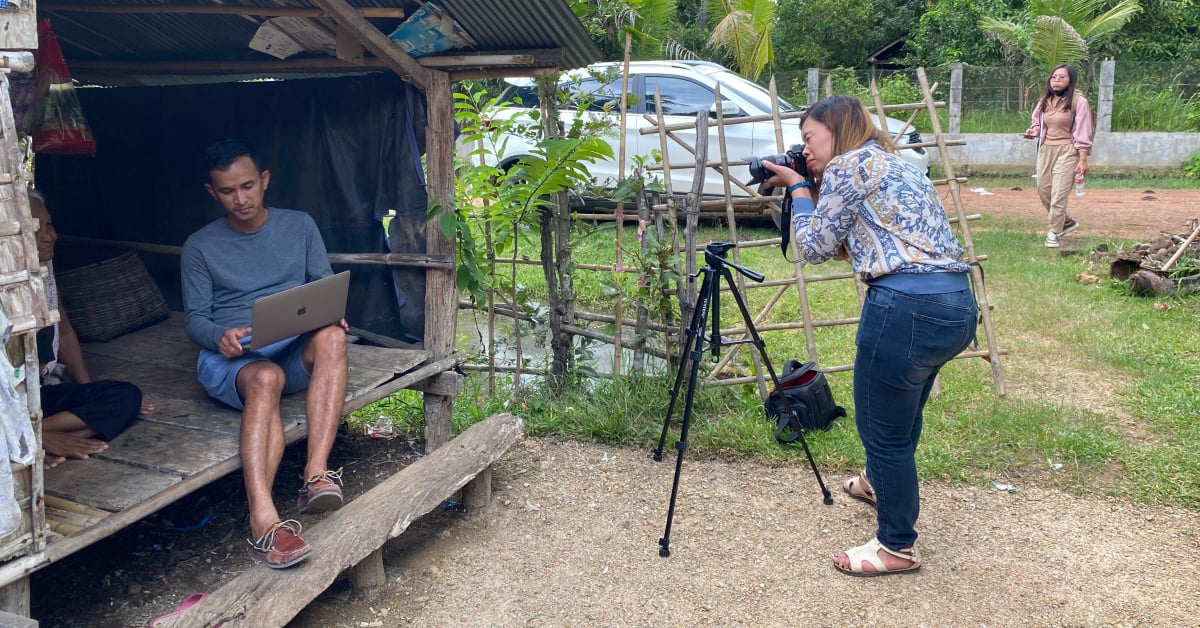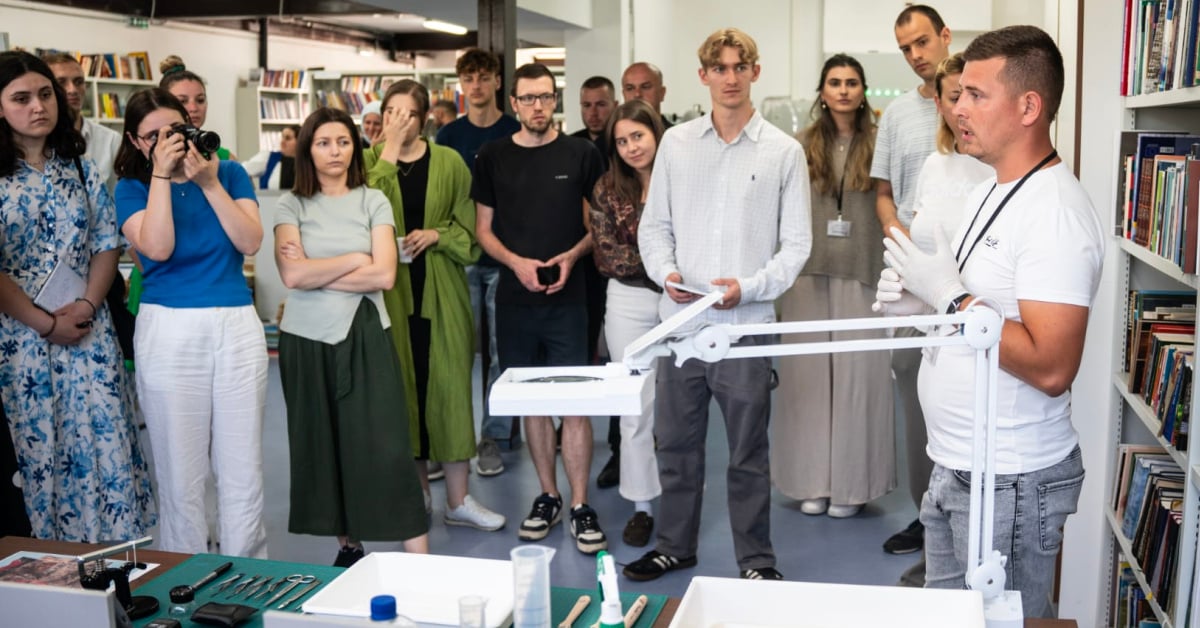Preserving memory and justice: global partnerships for a better future
17 April 2025 | By: Linda Norris | 4 min read
Linda Norris, Senior Specialist in Methodology and Practice at the International Coalition of Sites of Conscience, discusses the nature of these historic sites and the importance of the Coalition’s partnership with Newcastle University.
Contents:
- What is a Site of Conscience?
- What is the International Coalition of Sites of Conscience (ICSC)?
- How do ICSC and Newcastle University work together?
- Changing perceptions through knowledge, skills, and relationships
- Art as a catalyst
- What's next for the partnership?
What is a Site of Conscience?
Sites of Conscience are classed as historic sites, museums, and memorials that are dedicated to promoting and protecting human rights across the world.
A Site of Conscience is a place of memory. A place that prevents history erasure from happening in order to foster more just and humane societies today.
Not only do Sites of Conscience provide safe spaces to remember and preserve even the most traumatic memories, but they also enable their visitors to make connections between the past and related contemporary human rights issues.
All sites are united by their common commitment to use the lessons of the past to find innovative solutions to related social justice issues today.
What is the International Coalition of Sites of Conscience (ICSC)?
Founded in 1999, the International Coalition of Sites of Conscience (ICSC or "the Coalition") is the only worldwide network of Sites of Conscience.
With over 370 members in more than 65 countries, we build the capacity of these vital institutions through grants, networking, training, transitional justice mechanisms, and advocacy.
These members and partners remember a variety of histories and come from a wide range of settings, including long-standing democracies and countries struggling with legacies of violence, as well as post-conflict contexts just beginning to address their transitional justice needs.

An exhibition in the Museo de la Palabra y la Imagen (MUPI museum). MUPI is dedicated to historical memory in El Salvador. Credit: Maddy Haslem.
How do ICSC and Newcastle University work together?
In 2021, Newcastle University launched a university-wide strategic partnership with the International Coalition of Sites of Conscience. This partnership aims to engage academics, students, and community members interested in human rights to focus on memory work and practical knowledge exchange.
The partnership consists of an intern programme and a robust curriculum focused on community-based academic research. It all began in the summer of 2021 when Newcastle secured funding through its Centre for Heritage to support a group of four virtual interns to work with the ICSC. Since then, the internship programme has expanded to place 56 students at ICSC member sites across the globe, including Mexico, Cambodia, Brazil, South Africa, and Lebanon.
In 2024, more than 20 interns were matched with member sites. The internships are open to any student who is an undergraduate or above, all the way up to PhD candidates. The 2025 cohort will start their placements over the next few months. However, internships are just one part of the partnership.

Conducting interviews in Kampong Chhnang, Cambodia with Youth for Peace as part of the 2023 intern programme. Credit: Pippa Haslam.
The ICSC has facilitated colleague development sessions, been a partner on several research projects, facilitated dialogue sessions on tough topics, and made connections between the University and ICSC members.
The ICSC's work is never about learning from someone else and going home. We aim to create experiences that make permanent changes in minds and hearts. We help partners to consider, 'How can I build relationships with communities? What do I owe communities back if I'm taking their knowledge, trauma, and stories with me?'
We embed the message that community is paramount.

A group session at the Srebrenica Memorial Centre, Potocari, Bosnia and Herzegovina. The centre is a place of remembrance for the victims of the Srebrenica genocide. Credit: Ed Garnett.
Changing perceptions through knowledge, skills, and relationships
At ICSC, we often think of our work as ensuring that organisations and individuals have the knowledge, skills and relationships to do change-making work. My visit to Newcastle University reaffirmed that all three of those elements are critical parts of the partnership.
I expanded my own knowledge through meetings with colleagues about a huge range of areas; from museums and democracy to decolonising heritage interpretation and contemporary art virtual commissions. We also engaged in some skill-building, in particular facilitating two dialogue sessions; one about forcibly displaced people, and one about climate change. In the climate change session, participants had the chance to be in dialogue together, and also to learn about the dialogic methodology we use.
I had the opportunity to learn about the Campus Legacies project, and together the team explored ways of sharing complex stories of the University with an orientation towards the future.
Relationship building is the key. During my trip, I had the opportunity to deepen my relationships with colleagues, but the truly critical relationships are the ones between Newcastle students and ICSC members around the world, built through the internship programme.
Meeting and hearing from students who have either experienced internships or hope to in the future reinforced the long-term impact of relationship building. These students gain skills and knowledge, yes. But most importantly, they go out into the world with a sense of how strong relationships are needed to build change.
Art as a catalyst
A recent project that combined knowledge, skills and relationships was the art exhibit, "All Should be Afforded Dignity" and the associated programming.
The exhibit of Norman Kaplan's work about life under apartheid was developed by ICSC member The Anti-Apartheid Legacy: Centre of Memory and Learning. This centre has also hosted interns for the last two years. The exhibit and the critical need to address the history of apartheid in South Africa alongside the ongoing oppression in other parts of the world meant that the working group – made up of the organization, the ICSC, colleagues and students – had to, in a quick time frame, build trust in new relationships.
I also facilitated a session with students and colleagues, and I'll be thinking about the results of that for a long time. The incredibly thoughtful panel addressed ongoing issues in the Middle East, the ongoing global legacies of colonisation, and the ways in which the words we use illuminate or obscure. The panel also touched upon whether memorials can be or should be created before a conflict is ended, and what we think dialogue is or isn't in situations where dialogue may not be possible.
.jpg?width=1200&height=628&name=ICSC%20All%20Shall%20Be%20Afforded%20Dignity%20Exhibition%20(1).jpg)
All shall be afforded dignity UK exhibition, Hatton Gallery, Newcastle University.
What's next for the partnership?
A visit to Newcastle is always the chance for us to get together and dream big.
While the internship programme continues for another year, we continue to explore ways to connect ICSC members and the University, together, build that knowledge, those skills, and our relationships together.
You might also like
- read more about the partnership between Newcastle’s Centre for Heritage and the International Coalition of Sites of Conscience
- find out more about International Coalition of Sites of Conscience (ICSC) Internships
- find out more about Linda Norris, Senior Specialist, Methodology and Practice at the International Coalition of Sites of Conscience
- explore the work of Newcastle University’s Centre for Heritage
Header image credit: São Paulo Immigration Museum, São Paulo, Brazil. Credit: Ruby Buttolph.
